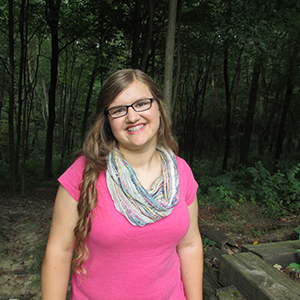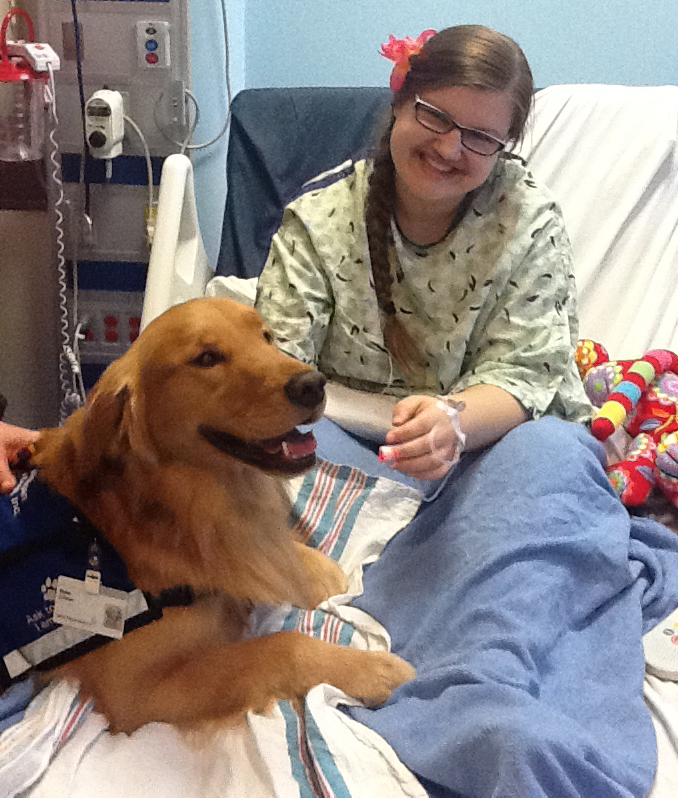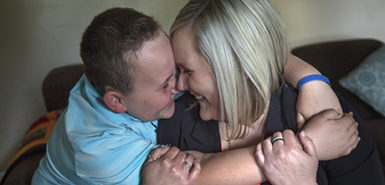
April 2013 was our family’s first attempt at a spring break trip.
We headed south to Gatlinburg, Tennessee, to stay in a cabin high in the mountains. We had hoped for a fun time of sightseeing, relaxing and time spent together as a family.
I was sick with a cold as we headed out, but hoped everyone else would remain healthy for the trip. That was not the case.
Our first day was spent hiking several trails and reliving some of my husband’s childhood memories. The next day it was apparent that both our kids were getting sick, and we ended up spending much more time in the cabin than we had anticipated.
On day four, as we went for a drive on a trail high in the mountains, Mikaela’s symptoms worsened and she began vomiting. The next day she spent in bed. The last full day the whole family headed into town so the kids could get souvenirs. Then we headed back to the cabin to pack up and get ready for the long ride home.
Mikaela had a rough ride home, struggling with cold symptoms and nausea.
We arrived back in Michigan at about 9 p.m. on April 4 and we quickly unloaded the van, then everyone went straight to bed. At 1 a.m. Mikaela came upstairs and said that she had a lot of blood in her urine.
We called our pediatrician and he advised us to head to our local emergency room. I assumed Mikaela would be diagnosed with a urinary tract infection, we would head home with a prescription of antibiotics, and Mikaela would be as good as new in a few days.
That is so far from what actually happened.

We spent a long night in the ER. The doctor ran several tests and decided Mikaela suffered from a virus. He was ready to send us home to rest and recuperate, but he wanted to make one more call to our pediatrician’s office before sending us home.
Our pediatrician asked that he consult with a kidney specialist at Spectrum Health Helen DeVos Children’s Hospital. The next time we saw the doctor he told me Mikaela was in an ambulance on her way to the children’s hospital. I followed the ambulance to Grand Rapids. It was a nerve-racking drive, as I just wanted to be with my daughter in the ambulance.
More tests revealed that Mikaela’s kidneys as well as her liver were very unhappy. Her blood pressure was high and she was still vomiting. When my husband, Brian, arrived we were asked to gown up and wear gloves and masks to protect us if Mikaela was suffering from some type of contagious illness. We felt like we were in our very own episode of “House.”
Brian and I slept at the hospital that night. Mikaela was getting worse and we had no answers as to why. After much prayer, at 11 p.m. we got a call from Julia Steinke, MD, a pediatric kidney specialist, saying that she had figured it out and that Mikaela was going to be OK.

Mikaela was diagnosed with paroxismal nocturnal hemoglobinuria, a rare blood disease. Mikaela’s body recognized her own blood as foreign and had destroyed over half of her blood. The broken-down blood was clogging her kidneys and causing them to fail.
The fact that this diagnosis was made by a pediatric kidney specialist in less than 24 hours felt like a miracle.
The doctors started Mikaela on steroids, antibiotics and other medications to prepare her body for the treatments she would soon begin. Two days later, Mikaela had her first infusion of Soliris, a medication to shut down her complementary immune system. This would protect her blood and allow it to do what it was meant to do.
We spent a week in the hospital working to get Mikaela’s kidneys happy and trying to get her blood pressure under control. Mikaela returned to the hospital every week for four more weeks of treatments and then switched to every other week. She struggled with IVs, so in June 2013 she had a port placed to make drawing blood and treatments easier on her and the nurses.
Mikaela will continue to receive treatments every other week for the rest of her life or until God heals her.
Mikaela and our family’s faith in God carried us through this difficult time. We had an army of people encouraging us and praying, including our families, pastor and friends. Mikaela received cards and flowers and was even serenaded by her choir.
She was seen by many physicians during her time at Helen DeVos Children’s Hospital, but her main doctors were Dr. Steinke and Rajat Pareek, MD, a pediatric intensivist.
One thing that Mikaela appreciated about her inpatient care at Helen DeVos Children’s Hospital was that the staff took the time to get to know her and make a connection. The nurses never left the room without asking if there was anything we needed or if they could get anything for us.
One of Mikaela’s real pleasures in the hospital was pet therapy. She missed her dog and was very happy to have two furry visitors.
I continue to be amazed and grateful for the care Mikaela receives in the outpatient hematology and oncology clinic at Helen DeVos Children’s Hospital. The nurses are incredible and invest in Mikaela’s life and encourage her in so many ways, especially in her artwork.
 /a>
/a>
 /a>
/a>
 /a>
/a>
This was very interesting. I’m very happy Helen Devos found a medicine for this rare blood disease. I also suffer with a rare blood disease called blackfan diamond anemia and receive blood transfusion every 2weeks. Would love to find a cure for this rare blood disease too. Prayers for Mikaela and her family.
Awesome!